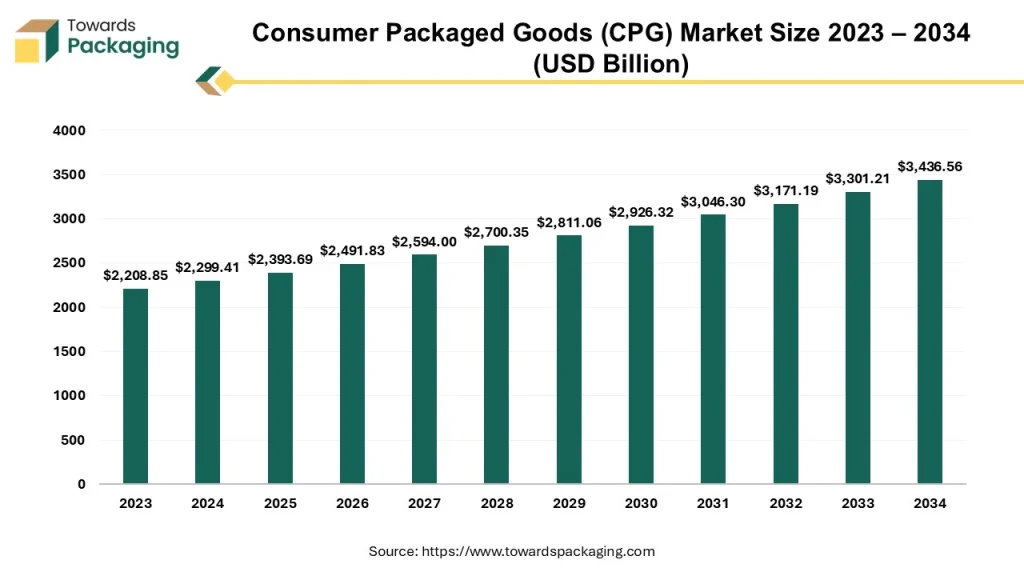When you think about your daily routine — brushing your teeth, having breakfast, cleaning your home, or even grabbing a quick snack — chances are you’re using products from Consumer Packaged Goods (CPG) companies. These companies have an incredible impact on our lives, often without us realizing it. But what exactly do CPG companies do? And why are they so essential to both consumers and the global economy?
Let’s explore the fascinating world of CPG companies and how they continue to evolve in today’s fast-changing landscape.

What Are Consumer Packaged Goods (CPG) Companies?
At their core, CPG companies produce goods that are consumed regularly and require frequent repurchasing. These products include:
-
Food and beverages
-
Personal care items (such as soaps, shampoos, and cosmetics)
-
Household cleaning products
-
Over-the-counter medicines
-
Pet care supplies
Unlike long-lasting products like cars or electronics, CPG items have a short shelf life and are designed for everyday use. Their constant demand creates a business model centered on high-volume sales and consumer loyalty.
Invest in Our Premium Strategic Solution: https://www.towardspackaging.com/download-databook/5098
Some of the Biggest Players in the Industry
When we talk about CPG companies, many of the world’s most recognizable brands come to mind. Giants like Procter & Gamble, Unilever, Nestlé, PepsiCo, Coca-Cola, Mondelez International, and Johnson & Johnson dominate shelves across the globe. They have built their reputation on decades of quality, innovative products, and powerful marketing campaigns.
These companies don’t just sell products — they build brands that resonate emotionally with consumers. Think about how many people feel a sense of trust and familiarity with brands like Colgate, Dove, or Oreo.
How Do CPG Companies Operate?
The business model behind CPG companies is both simple and complex. Let’s break it down:
1. Product Innovation
CPG companies are constantly researching and developing new products to meet changing consumer preferences. Whether it’s healthier snack options, environmentally-friendly packaging, or new beauty formulations, innovation keeps customers engaged and loyal.
2. Manufacturing
Large-scale manufacturing allows CPG companies to produce massive quantities of products while maintaining consistency and quality. Some companies manage their own manufacturing plants, while others outsource production but closely monitor quality control.
Get All the Details in Our Solutions – Access Report Preview: https://www.towardspackaging.com/download-sample/5098
3. Distribution
Efficient logistics are critical to getting products onto store shelves and into consumers’ hands. CPG companies work with a variety of retailers, wholesalers, and e-commerce platforms to ensure their products are widely available.
4. Branding and Marketing
Brand recognition is everything in the CPG world. These companies invest heavily in advertising, influencer partnerships, sponsorships, and creative packaging to stand out in crowded markets.
5. Retail Partnerships
Strong relationships with retailers help CPG companies secure valuable shelf space and promotional opportunities, which directly impact sales and visibility.
Key Trends Shaping the Future of CPG
The CPG industry is undergoing significant transformation as it adapts to new consumer demands and global challenges. Here are some of the major trends influencing the sector today:
1. Health-Conscious Consumers
More people are reading labels and seeking healthier options. This has led to a surge in demand for organic, plant-based, and clean-label products. Companies like Nestlé and PepsiCo are expanding their portfolios to include better-for-you choices that align with modern lifestyles.
2. Sustainability and Eco-Friendliness
Environmental responsibility is now a key concern for both companies and consumers. Brands are focusing on sustainable sourcing, reducing plastic use, and improving recyclability. Unilever, for example, has committed to making all its plastic packaging reusable, recyclable, or compostable by 2025.
3. E-Commerce and Direct-to-Consumer Sales
The rise of online shopping has opened new channels for CPG companies. Direct-to-consumer (DTC) platforms allow brands to build closer relationships with their customers while gathering valuable data for personalized marketing.
4. The Rise of Challenger Brands
Smaller, niche brands are gaining popularity by offering authentic, transparent, and purpose-driven products. Many of these startups appeal to younger consumers who prioritize values and uniqueness over brand legacy.
5. Global Expansion
Emerging markets in Asia, Africa, and Latin America offer significant growth opportunities for CPG companies. However, entering these markets requires careful adaptation to local cultures, preferences, and regulations.
If you have any questions, please feel free to contact us at sales@towardspackaging.com
Challenges Facing CPG Companies
While the industry is full of opportunities, it’s not without its challenges:
-
Supply Chain Disruptions: The COVID-19 pandemic exposed weaknesses in global supply chains, prompting companies to rethink their operations.
-
Rising Costs: Inflation, labor shortages, and fluctuating raw material prices put pressure on profitability.
-
Evolving Consumer Loyalty: Today’s consumers are more willing to experiment and switch brands, especially when they find products that better align with their values.
-
Regulatory Pressures: Governments are enforcing stricter regulations around health, safety, and environmental impact.
The Road Ahead: Innovation is Key
The future of CPG companies lies in their ability to adapt, innovate, and stay connected to consumer needs. Companies that successfully blend tradition with innovation will remain industry leaders. Some of the areas that will drive growth include:
-
Personalized products and experiences through data-driven insights
-
Seamless integration of online and offline sales channels (omnichannel retail)
-
Continued investment in sustainability and social responsibility
-
More agile and resilient supply chain models
-
Commitment to ethical business practices and inclusivity
Final Thoughts
Consumer Packaged Goods companies may seem like background players in our daily lives, but they play a crucial role in shaping modern consumer culture. Their ability to innovate, evolve, and stay attuned to shifting consumer preferences makes them a powerful force in the global economy.
As consumers, we may not always notice the complexity behind our favorite products. But behind every item we buy lies an intricate network of research, production, logistics, and marketing — all driven by companies committed to making everyday life just a little bit easier, tastier, cleaner, and more enjoyable.
Source : https://www.towardspackaging.com/insights/consumer-packaged-goods-cpg-market-sizing

